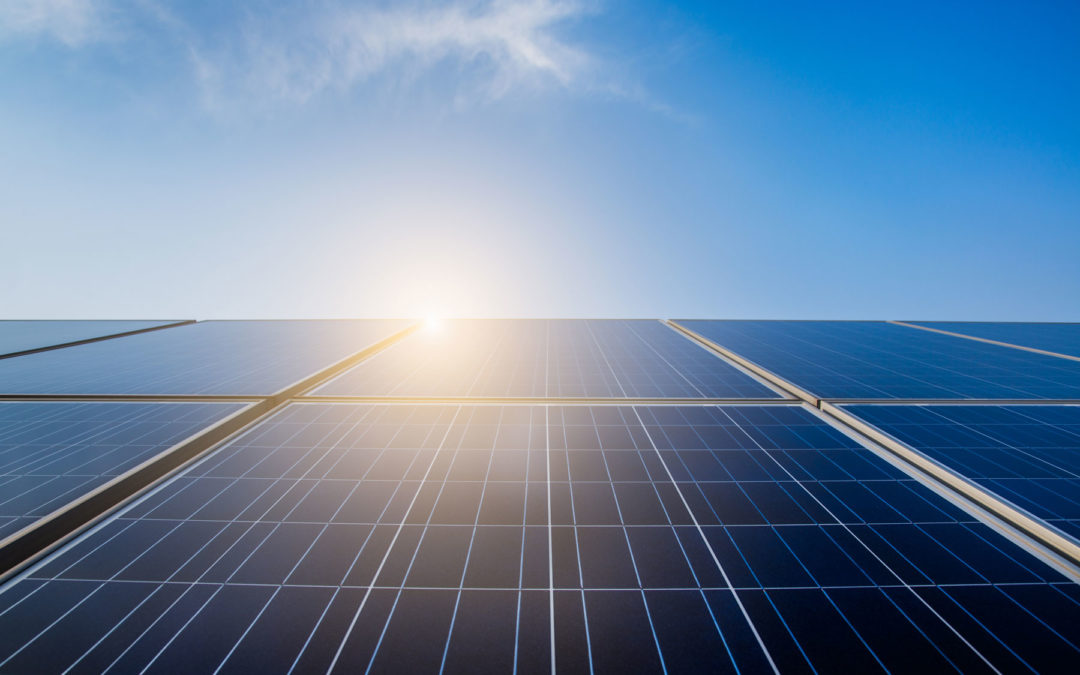
by Michael Vickerman | Nov 6, 2020 | Electric Vehicles, Energy Storage, Programs, Public Service Commission, Solar
Update: The Request for Proposals (RFP) pursuant to the 2020 grant cycle of the Energy Innovation Grant Program has been posted on the Public Service Commission’s web site. You can access the RFP here. The due date for grant submissions is January 22, 2021.
October 19, 2020
The Public Service Commission approved $7 million in funding that will be awarded through the 2020 round of the Energy Innovation Grant Program (EIGP). The EIGP awards financial assistance that supports the Office of Energy Innovation’s mission relating to energy efficiency, renewable energy, transportation, planning and resilience. In the previous round in 2018, the EIGP distributed nearly $5 million to more than 100 recipients. EIGP presently has a cash balance of more than $26 million.
The final order (PSC REF# 398392) was issued on October 16th, setting forth elements including (1) eligibility criteria; (2) eligible activities; (3) program budget; (4) procedures for tracking and reporting; and (5) development of the Request for Proposals (RFP).
The most important decisions rendered by the Commission are itemized below, interspersed with tables providing greater granularity on the program design and schedule.
Key decisions
- The following entities are eligible to seek funds through this program: manufacturers of all sizes; and cities, villages, towns, counties, K-12 school districts, tribes, municipal water and wastewater utilities, municipal electric utilities, municipal natural gas utilities, University of Wisconsin System campuses and facilities, Wisconsin Technical College System, public or nonprofit hospitals, and 501(3)(c) nonprofits (collectively MUSH Market).
- A budget of $7 million was authorized for the upcoming round. This represents an increase of $2 million from the previous round. The allocations for each of the four program activities are listed below.
- Projects involving all statutorily defined renewable energy resources are eligible for funding.
- The additional $2 million were allocated to Activities 1 and 2.
| Optional Available Funds Per Activity for 2020 Program Year |
| Activity |
Maximum grant request |
Available funds per activity |
| 1. Renewable Energy + Energy Storage |
22% up to $250,000
(solar PV only) |
$2.5 million |
| $500,000 (other RE) |
| $250,000 (energy storage system) |
| $500,000 (solar + storage) |
| $750,000 (other RE + storage) |
| 2. Energy Efficiency + Demand Response |
$1 million |
$3 million |
| 3. Electric + RNG Vehicles + Infrastructure |
$100,000 |
$1 million |
| 4. Comprehensive Energy Planning |
$100,000 |
$500,000 |
| Total |
|
$7 million |
The Commission also approved a timeline for the upcoming round of funding, the milestones of which appear in the table below.
| Tentative 2020 Energy Innovation Grant Program Year Timeline |
| Date |
Activity |
| 9/2020 |
PSC consideration of 2020 Grant Program Design – final order issued |
| 10/2020 |
Final order issued; Circulate RFP 90-day application period |
| 1/2021 |
Applications due |
| 2/2021 |
Review and score proposals |
| Spring 2021 |
2020 EIGP Award recommendations considered; announce awards |
| Spring 2021 |
Contract negotiations; sign award agreements |
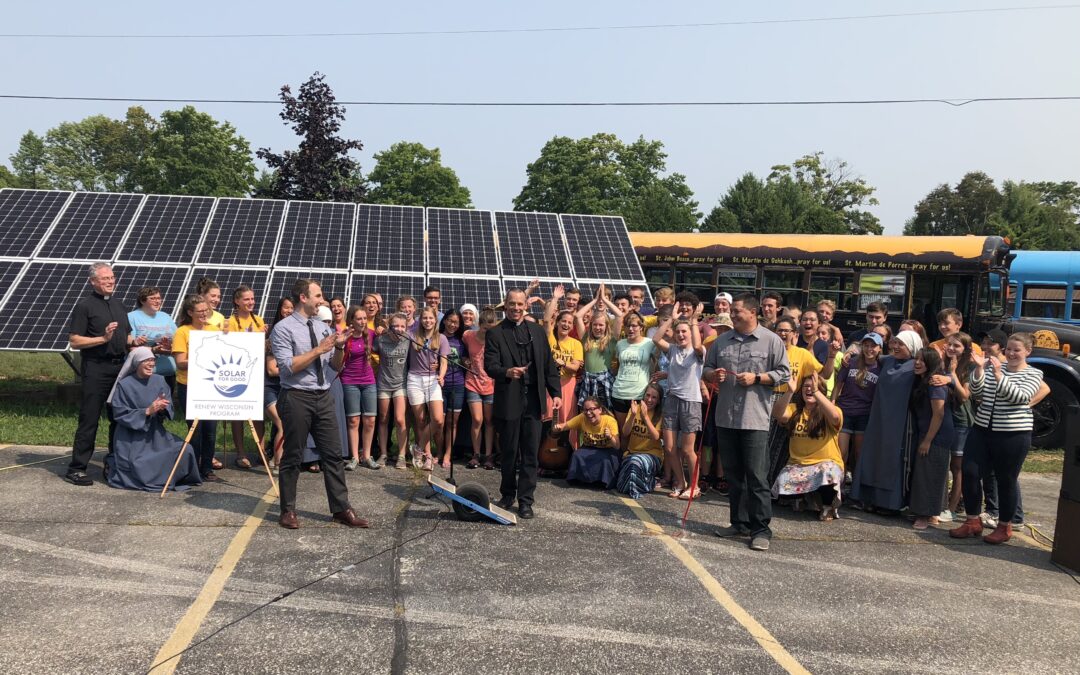
by Sam Dunaiski | Oct 29, 2020 | Community, Local Initiatives, Renewables, Solar, Solar for Good, Sustainable Business
RENEW Wisconsin’s Solar for Good program has awarded over $190,000 in cash grants and materials to Wisconsin nonprofits for installing on-site solar energy systems. Seventeen organizations will install 719 kilowatts of clean, renewable electricity leading to nearly $1.4 million in renewable energy investments in Wisconsin.
The following organizations have been offered Fall 2020 Solar for Good grants to install new solar electric systems:
All Saints Lutheran Church, house of worship, Fitchburg.
Boys and Girls Club of Dane County, after-school youth programming, Madison.
Community Clothes Closet, free clothing provider, Menasha.
Couleecap Inc, poverty alleviation, Westby.
Ezekiel Lutheran Church, house of worship, River Falls.
Friends of Sauk County Fairgrounds, historic preservation, Baraboo.
Grace Evangelical Free Church, house of worship, Viroqua.
Habitat for Humanity of Dane County, affordable housing provider, Madison.
Habitat for Humanity Restore, affordable housing support, Beaver Dam.
Just One More Ministry, food pantry, Glendale.
Milwaukee Habitat for Humanity Restore, affordable housing support, Greenfield.
Plymouth Congregational United Church of Christ, house of worship, Madison.
The BRICK Ministries, poverty alleviation and food pantry, Ashland.
Walnut Way Conservation Corps, community conservation organization, Milwaukee.
Yerkes Future Foundation, education and historic preservation, Williams Bay.
Two organizations have asked to remain anonymous at this time.
This round of Solar for Good grants features a diverse group of organizations from across Wisconsin. The Boys and Girls Club of Dane County will install over 250 panels at their Madison-based facility and plan to demonstrate the benefits of solar energy to the young people they serve. An 11-kilowatt array will be installed at the BRICK Ministries in Ashland with the help of donated solar panels from One Energy Renewables, a large-scale solar developer. And a 60-kilowatt array is planned at the famous Yerkes Observatory in Williams Bay, home of the world’s largest refracting telescope used for astronomical research.
“The grant and the installation of solar panels underscores the ongoing value of Yerkes Observatory as a place for scientific discovery and education,” stated Dianna Colman of Yerkes Future Foundation. “Students and visitors will experience firsthand the impact of solar power…even on a building dating back to 1897.”
In addition to the Couillard Solar Foundation, Solar for Good’s founding funder, this cycle of grants also received backing from the Array it Forward initiative at First Unitarian Society in Madison. The First Unitarian Society won a Solar for Good grant in 2018 and wanted to share the benefits they received from their solar array with other nonprofits across Wisconsin. Array it Forward is made possible through donations solicited from their congregation and the community.
“Solar for Good shares our values and priorities for stabilizing our climate and speeding our transition to renewable energy,” said Carol Phelps, a contributing donor to Array it Forward. “This will make life better for the children of the world…when people unite to tackle climate change, there is great hope for the future.”
The 17 nonprofit organizations are a part of Solar for Good’s 7th round of funding. Since its inception in 2017, Solar for Good has offered solar grants to 96 Wisconsin-based nonprofits.
When each of the solar projects are energized, these nonprofits will have added over 4 megawatts of clean, renewable energy to Wisconsin’s electric mix, enough to power approximately 900 homes. Solar for Good projects will represent a total of $9.2 million of private investments in Wisconsin renewable energy over the past three years.
About Solar for Good RENEW Wisconsin’s Solar for Good initiative fosters the expansion of solar power among mission-based nonprofits and houses of worship in Wisconsin. Through a generous partnership with Couillard Solar Foundation and Array it Forward, RENEW Wisconsin awards grants and solar panels to nonprofit organizations, helping them switch to clean, renewable, solar energy.
About RENEW Wisconsin RENEW Wisconsin is a nonprofit organization which promotes renewable energy in Wisconsin. We work on policies and programs that support solar power, wind power, biogas, local hydropower, geothermal energy, and electric vehicles. More information on RENEW’s website: www.renewwisconsin.org.
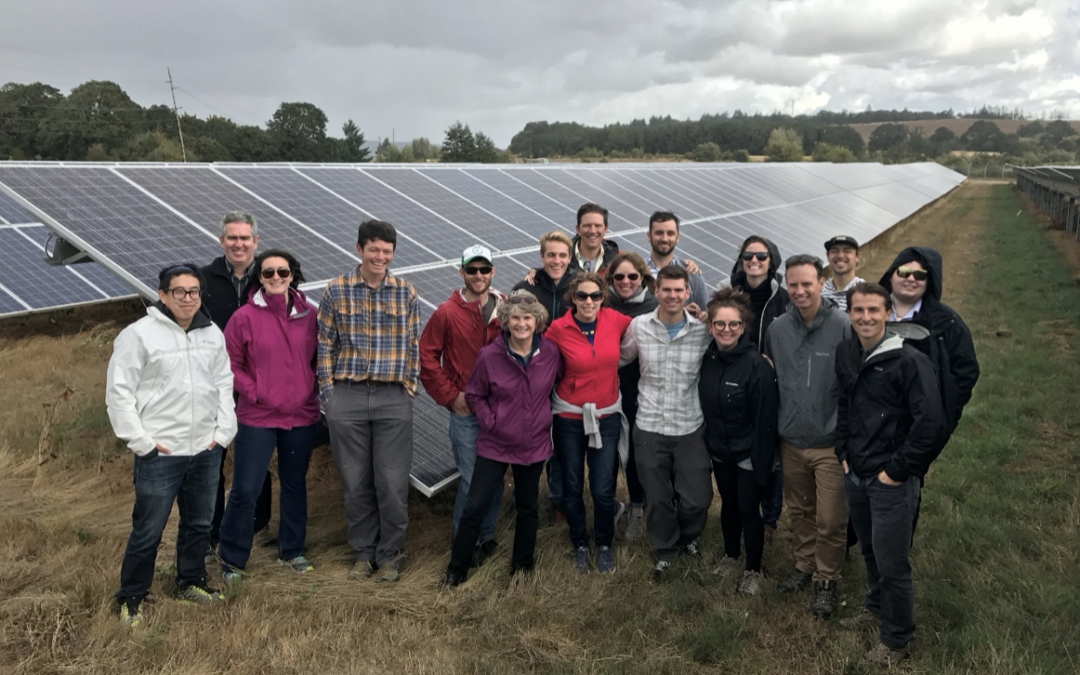
by Guest Blog | Aug 5, 2020 | Community, Renewables, Solar
Submitted by Bill Bailey of Cheq Bay Renewables
Two Ashland, Wisconsin nonprofits are installing solar photovoltaic systems on their facilities. The nonprofits are household names in the Chequamegon Bay area of western Lake Superior – the New Day Advocacy Center and The BRICK Ministries.
New Day Advocacy Center provides free and confidential domestic violence and sexual assault victim services, including shelter and other crisis intervention services. They also provide community prevention education to culture respect and lasting change in community behavior – No More Abuse!
The BRICK’s mission is to compassionately help people in need. They are best known for their Food Shelf Program, but also provide emergency financial resources and referrals with a focus to keep people in their homes through their Benevolence Program
Both organizations have considered solar installations in the past to reduce utility expenses and to generate clean energy. But as each nonprofit had roofs which needed repair, and had purchased or recently moved into newly renovated facilities, they were both financially strained. The solar would have to wait. That was until Eric Udelhofen called from OneEnergy Renewables, a community and utility scale solar project developer based in Seattle, Washington with a satellite office in Madison.
OneEnergy had 35 high-quality, modern solar modules they wanted to donate to a worthy Ashland nonprofit. OneEnergy was the solar developer on the recently constructed 1-megawatt Xcel Energy community solar garden in Ashland. The modules were “bones,” extra parts, left over from purchasing or shipping in bulk quantities, and OneEnergy wanted something good to come from their surplus.
Solar modules represent roughly 15% of the cost of a small solar project. The other 85% is comprised of inverters, racking, miscellaneous additional materials and labor. Jolma Electric of Ashland, who was also involved in the installation of Ashland’s community solar project, joined the project agreeing to perform its installation services “at cost,” and the total project cost was reduced by 22%. Then C&S Design & Engineering, also from Ashland, reduced their engineering cost by 50%, further lowering the total installation price.
Additional funding was needed to cover the remaining balance of the installation. The New Day Board was the first of the two projects to vote to move forward with raising the remaining funds. A GoFundMe site was set up and $6,500 was raised in two weeks. In addition, $3,400 of private checks were received designated for the solar installation. Of the nearly $10,000 of cash donated to the New Day rooftop solar project, OneEnergy employees donated $6,000.
There is another story here. At the core of OneEnergy’s business model is a commitment to serve the communities in which they operate, along with a strident belief that the transition to clean energy will help create a more sustainable and equitable global economy. Not only did the corporation donate the solar modules, but employees stood behind this commitment and donated their personal cash. The status quo of corporate America as an entity has become isolated from their communities. OneEnergy, as well as Jolma Electric and C&S Design and Engineering, are demonstrating an alternative approach, modeling a more enlightened view about the role of companies in society and a commitment to be the change that they wish to see in the world.
So New Day’s project is off and running and now The BRICK has begun its fundraising campaign. An awning style installation was designed by Jolma Electric and C&S Design & Engineering. The donated modules will fill half the south façade of the facility with opportunity to fill the remainder if or when funds allow. The full project would cost $31,990 of which $20,490 has already been raised. A GoFundMe site has been set up for The BRICK to fund the remaining $11,500. If you can help go to: https://bit.ly/3k0IeLm to donate.
During this time of COVID-19, it is encouraging to see that community-building defeats fear, love overcomes hatred, and clean energy offsets fossil fuels. With the support of this community, these two nonprofits, New Day Advocacy Center and The BRICK, are choosing the alternative path, the “culture of service.”
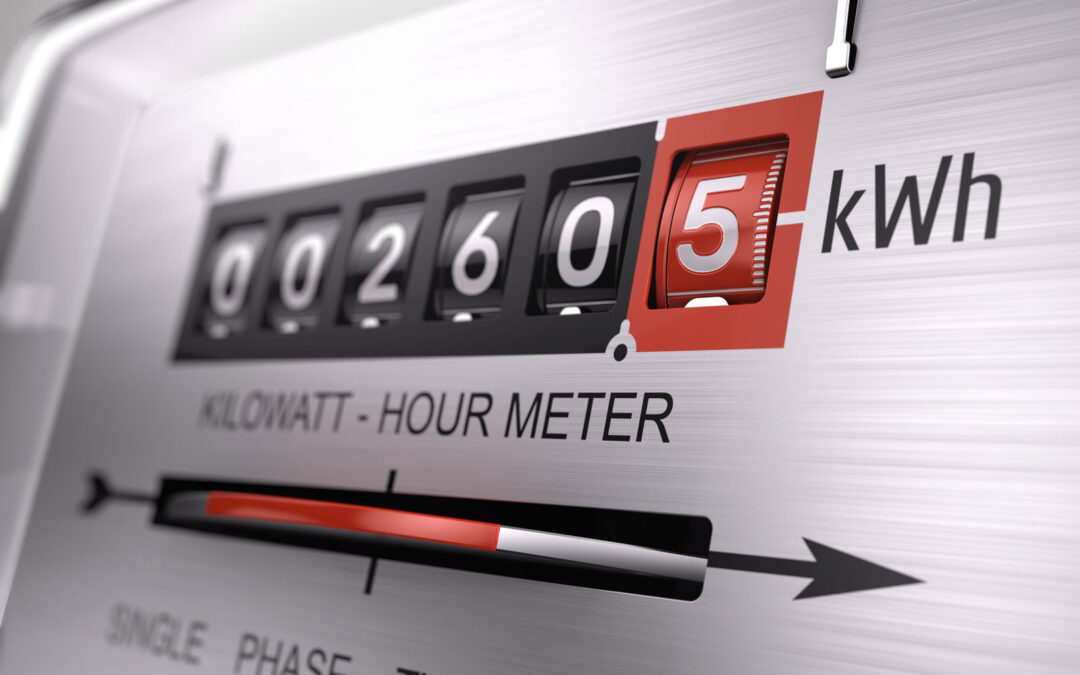
by Heather Allen | Jul 21, 2020 | Advocacy, Policy, RENEW Wisconsin, Renewables, Solar, Utilities
Last week the Federal Energy Regulatory Commission (FERC) dismissed a challenge to state control of net metering. The unanimous decision made on Thursday, July 16, 2020 was great news for RENEW Wisconsin and our members. Homeowners, business and manufacturers that generate their own solar energy can now breathe easy, knowing that the oversight for net metering policy remains in the hands of Wisconsin’s own Public Service Commission.
The New England Ratepayers Association (“NERA”) had petitioned the FERC to take control over net metering policy for the entire country. If the petition were granted, states would have lost the ability to set policy on solar electricity generated by utility customers. The challenge to state control of net metering, the policy that enables energy producers to get bill credit for the extra energy they push back on to the grid, threatened the solar investments of thousands of families and businesses in Wisconsin.
RENEW joined dozens of other clean energy advocacy organizations in a petition to dismiss the issue and encouraged Wisconsin’s political leadership to get involved. Many elected officials from around the country joined in the fight to protect net metering including Wisconsin’s own, Attorney General Josh Kaul.
Check out the background on this story and how RENEW fought to protect Wisconsinites generating clean energy on their homes and businesses.
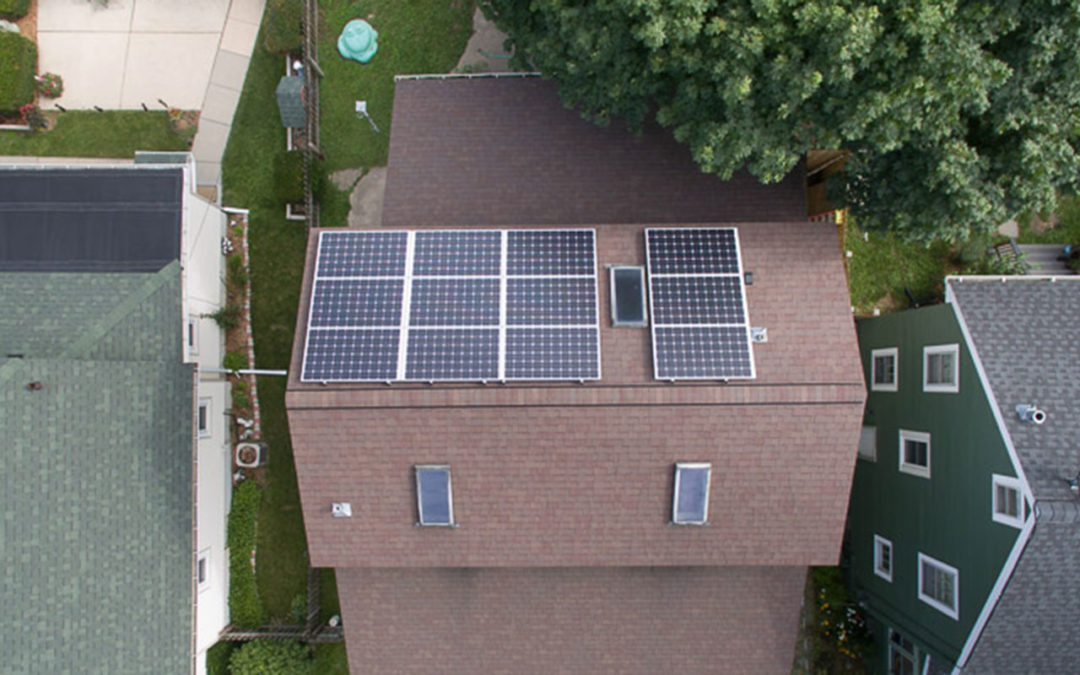
by Heather Allen | Jun 29, 2020 | Policy, RENEW Wisconsin, Solar, Utilities
An upcoming decision by the Federal Energy Regulatory Commission (FERC) has the solar industry, legislators, clean energy advocates, and state regulators extremely worried over the viability of solar power for homeowners and businesses.
The New England Ratepayers Association (“NERA”) has petitioned the FERC to take control over net metering policy for the entire country. If the petition is granted, states would lose the ability to set policy on solar electricity generated by utility customers. NERA’s petition has sparked widespread opposition from states, legislators, individuals and renewable energy businesses. Attorney Generals from 15 states, including Wisconsin’s own Attorney General Josh Kaul, submitted a protest in opposition to the petition.
What inspired 15 attorney generals, three governors, and state officials from across the political spectrum to engage in a federal energy policy debate?
For almost 40 years, states have had the authority to design and implement net metering policies. The NERA petition aims to reverse this long-standing precedent and eliminate Wisconsin’s ability to tailor utility net metering services to best fit local conditions.
What is net metering?
As defined by the Solar Energy Industries Association, net metering is a billing mechanism that credits PV system owners for the electricity they add to the grid. For example, if a residential customer has a rooftop PV system, it may generate more electricity than the home uses during daylight hours. If the home is net-metered, the electricity meter will run backwards to provide a credit against what electricity is consumed at night or other periods when the home’s electricity use exceeds the system’s output. The credit is set at the customer’s retail energy rate. Under this arrangement, customers are only billed for their “net” energy use. This practice enables utility customers who are producing their own electricity to decrease their electricity bills, and it is a powerful tool for driving investment in solar power.
What is at stake here?
According to the U.S. Energy Information Administration, Wisconsin has 3,879 residential net metering households, 874 commercial net metering customers, and 74 industrial net metering customers. These customers are at risk of increased electric bills with the potential loss of net metering.
In addition, the 2019 jobs data from Clean Energy Trust found that before the pandemic hit, Wisconsin employed over 3,798 solar installers as part of the statewide clean energy workforce. With less financial incentive for installing solar, these jobs and other clean energy jobs would be at risk if this petition is granted.
Net metering is good for everyone
RENEW Wisconsin joined other organizations in protesting this petition to wrest control of net metering away from states and put it in the hands of a federal agency. Our protest, authored by attorneys Dave Bender and Carter Hall of Earthjustice with clients Sierra Club and Vote Solar, includes explanations of the value of net metering policies for the electric grid. Here are some essential excerpts from the protest:
- Net metered facilities (such as solar) provide capacity value by avoiding otherwise required generation, transmission and distribution capacity.
- With net metering, solar has become an affordable option for almost everyone, not just high-wealth families. Net metering supports the increased use of distributed solar (such as solar arrays on the rooftop of a house or business), stimulating investment across communities while reducing the environmental and health impacts on low income communities and communities of color, who are disproportionately burdened by current forms of energy production.
- Solar installers operate in a competitive marketplace, driving down prices and passing savings onto consumers.
- Distributed solar has predictable energy production.
- Allegations of cross-subsidies are unfounded and overstated. Net metered customers often reduce their own loads and system loads during the cost-causing peak hours used to allocate costs of retail service, meaning they consume less of the fixed and demand services as measured by cost of service analysis.
Strong bipartisan support for state control of net metering
Millions of individual citizens and businesses across the country have made significant investments to generate their own electricity and have entered long-term contracts premised on the continuation of policies and programs regulated at the state level. Granting the petition would create enormous uncertainty and financial harm for our citizens and businesses at a time when they are already struggling with the economic impacts of the coronavirus.
More than 240 comments in opposition have been submitted to the FERC, and just five comments in support of taking away state control of net metering. Here are a few highlights:
Josh Kaul, Attorney General of Wisconsin said,
“Suddenly changing the rules on Wisconsinites who invested in clean energy for their homes is wrong and bad for the future of clean energy,” said AG Kaul. “The federal government shouldn’t be disrupting state programs that are good for the environment and help consumers save money.” 6/15/20
Frank Knapp Jr. CEO and President of South Carolina Small Business Chamber of Commerce said,
“…Net metering regulation properly resides with the states… We ask that the Commission reject the NERA petition. Moving it forward only serves the purpose of big special interests that find it easier to influence one group of federal commissioners rather than legislators, regulators and consumers in 50 individual states.” 6/11/20
Terry Kilgore, Virginia State Delegate (R-VA-1) wrote,
“This case would set two bad precedents. It would move us closer to nationalized electricity regulation and give more power to unaccountable federal bureaucrats. We, as Virginians, must oppose this and fight to make sure the authority to set energy policy stays vested with Virginia’s General Assembly.” 6/20/20
Net metering is in jeopardy. The petition, if approved, would take the state out of the picture in designing and preserving net metering as we know it. You can count on RENEW to keep working to ensure that net metering policies remain in the hands of our state regulators and are designed to fairly compensate residents and business that have installed renewable energy.
Make a donation today to support this work and all of the ways RENEW Wisconsin is protecting and advancing renewable energy in Wisconsin.






